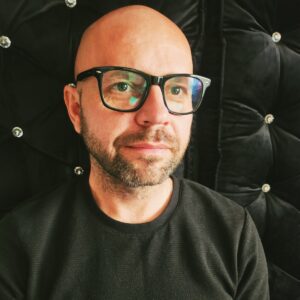In the picturesque region of the Algarve in Portugal, local communities are engaged in marine life conservation to ensure the long-term availability of valuable resources such as octopuses, which are an important source of food and income. In the town of Armação de Pêra, which has transformed from a fishing village into a tourist resort, life slows down in the winter season, and the beaches and streets become deserted. After this period, the sea comes alive again with numerous fishing boats and tourists who arrive in search of the regional delicacy – octopus.
Octopus is not only a tasty dish but also the most lucrative seafood product in Portugal, with annual consumption exceeding 15,000 tons – the highest in Europe. Most of the catch of this delicacy takes place in the Algarve, making the region the center of the octopus fishing industry.
Mafalda Rangel, a researcher from the University of Algarve, emphasizes that octopus is a key source of income for local fishing communities that use traditional fishing methods such as traps and pots. However, commercial fishing and increasing tourist activity are putting pressure on coral reefs and marine ecosystems, raising concerns about the future of this industry.
In response to these challenges, fishermen in the Algarve are taking steps to protect their resources. An example is Miguel Rodrigues, a former president of the local fishermen’s association, who recalls how easy it was to catch octopuses in his youth. Today, despite using more modern tools and techniques, fishermen like him struggle with significantly smaller catches of these organisms.
Modern fishermen often replace traditional clay pots with plastic ones, which are cheaper to mass-produce. However, clay pots have an additional advantage – they can crack under harsh weather conditions, warning fishermen about the poor state of the sea.
Despite difficulties in tracking octopus populations due to the lack of EU regulations and their short life cycle, fishermen and researchers like Rangel stress the importance of responsible marine resource management. For example, to reduce the environmental impact, the Portuguese have introduced regulations limiting octopus fishing, such as a ban on fishing on weekends and a requirement to release back into the sea octopuses weighing less than 750 grams.
In response to the increasing demand for seafood and related concerns about the future of supplies, plans are underway to establish the world’s first commercial octopus farm in the Canary Islands. Although octopus farming could relieve pressure on wild populations.
These issues are not unique to Portugal; a global increase in seafood demand results in similar challenges worldwide.
Projects such as the Marine Protected Area (MPA) and co-management committees, which allow fishermen and other stakeholders to participate in decisions about resource management, are gaining popularity. These initiatives aim not only to protect marine species and their habitats but also to ensure long-term stability for local fishermen.
Conservation and optimal management of marine resources in the Algarve are becoming a model to follow, showing how local communities can effectively influence the future of the natural environment. Through commitment and innovation, the residents of Armação de Pêra and the Algarve are working to protect the oceans on which their ancestors relied for generations.
About the author

Grzegorz Bubak
My fascination with marine aquariums began over two decades ago when I stumbled upon an article about this topic in a magazine. Since then, the underwater world has become my obsession and passion, shaping my everyday life. I started my adventure with marine aquariums with soft corals, which were my first step into this fascinating world. Over time, captivated by the diversity and beauty of SPS corals, I decided to focus on their cultivation, which continues to fill me with constant wonder.
Thanks to my experience and passion for marine aquariums, I am ready to share my knowledge and expertise with other enthusiasts in this field. I am happy to be part of the Reef Pedia community, which serves as an invaluable source of information for all marine aquarium lovers.

